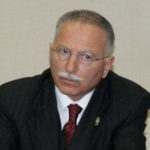By Rachel Ehrenfeld and Alyssa A. Lappen
Washington Times | October 6, 2005
It’s time for the United States to limit financial transactions that involve American companies to governance by secular laws. The swelling oil revenues of the Gulf states have created demand from those markets for U.S. investments in banks, real estate and industrial stocks. Most has been invested according to the usual financial guidelines, but the recent surge in revenues has also stimulated the demand to impose Islamic law (sharia) on financial investments.
In their urgent desire to find new markets, Americans have opened the door to Islamist expansionism. The Dow Jones Islamic Markets index and Islamic U.S. banks and financial products, which are catering exclusively to Muslims, only advance the Islamic impetus to impose sharia-governed banking on the West. For example, Michael J.T. McMillen, a partner at Dechert, and “a pioneer in the burgeoning Islamic banking and finance market,” aggressively solicits and accommodates sharia compliant transactions. If Islamic investors want to abide by sharia, nothing prevents them from doing so. But there is no reason for American banks, businesses and investment firms to introduce Islam or any other religion into the U.S. capital markets.
American legislators, regulators and businessmen should follow the lead of Ontario’s Premier Dalton McGuinty who on September 11, responding to the Islamic Institute of Civil Justice, which applied to arbitrate civil cases in the Muslim community according to sharia, declared: “There will be no Shari’a law in Ontario. There will be no religious arbitration in Ontario. There will be one law for all Ontarians.” Mr. McGuinty said religious arbitrations “threaten our common ground,” and promised his Liberal government would introduce legislation “as soon as possible” to outlaw them in Ontario. “Ontarians will always have the right to seek advice from anyone in matters of family law, including religious advice,” he said. “But no longer will religious arbitration be deciding matters of family law.”   Meanwhile, in the United States, the Council on American Islamic Relations (CAIR) is urging Muslims to contact their elected representatives and urge them to sign a House resolution recognizing the upcoming fast of Ramadan and commending Muslims for their faith. There is nothing wrong with recognizing Ramadan. Many other resolutions had been adopted to recognize different religious holidays. There was even a special resolution adopted on July 1, 1999, “Supporting religious tolerance toward Muslims.” However, there is no precedent for commending any particular faith and we should not set one now.
That CAIR, a Saudi-supported organization, has the chutzpa to initiate such commendation is not surprising, especially in view of the latest presidential declaration on Sept. 26, that “Saudi Arabia is cooperating with efforts to combat international terrorism.” This is despite the fact that “in September 2004 the Secretary of State designated Saudi Arabia, for the first time, as a country of particular concern for its severe violations of religious freedom within its borders.”
Moreover, a recent GAO report on “U.S. Agencies’ Efforts to Address Islamic Extremism” noted: “The Department of State’s 2004 International Religious Freedom Report to Congress states that freedom of religion does not exist in Saudi Arabia and that basic religious freedoms are denied to all but those who adhere to Saudi Arabia’s sanctioned version of Sunni Islam.” Earlier this month, Saudi Arabia, also received a waver of financial sanctions, despite its failing to stop “slave trade in prostitutes, child sex workers and forced laborers.” In addition, according to the GAO report, “Saudi donors and unregulated charities have been a major source of financing to extremist and terrorist groups over the past 25 years.”
Indeed, that activity has not stopped, as evident from the August capture of Y’akub Abu Assab, a senior Hamas operative, who transferred hundreds of thousands of dollars and operational instructions from Hamas headquarters in Saudi Arabia to East Jerusalem. From there, he distributed the money as instructed to families of suicide bombers and for Hamas activities in the West Bank and Gaza.
Moreover, as reported by the GAO “in July 2005, a Treasury official testified before Congress that Saudi Arabia based and funded organizations remain a key source for the promotion of ideologies used by terrorists and violent extremists around the world to justify their agenda.” The promotion of sharia into the U.S. business environment meanwhile goes on apace. Since this is the same Islamic ideology that is used by Islamist terrorists, its acceptance in any civil forum is not a good thing.
Rachel Ehrenfeld, author of “Funding Evil; How Terrorism is Financed — and How to Stop It,” is director of the American Center for Democracy and a member of the Committee on the Present Danger. Alyssa A. Lappen is a freelance journalist who frequently contributes to FrontPageMagazine and other online journals.
All Articles, Poems & Commentaries Copyright © 1971-2021 Alyssa A. Lappen
All Rights Reserved.
Printing is allowed for personal use only | Commercial usage (For Profit) is a copyright violation and written permission must be granted first.






